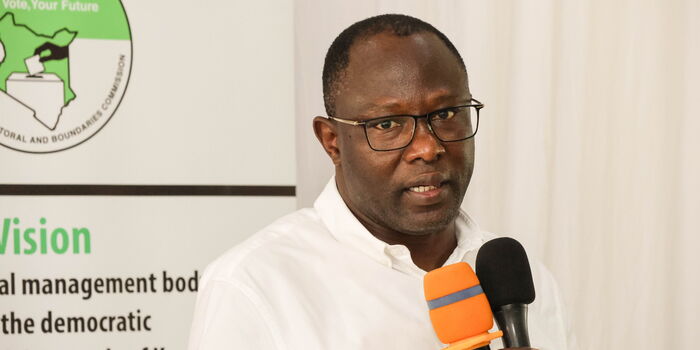A petition has been filed at the High Court seeking to suspend all preparations being spearheaded by the Electoral and Boundaries Commission (IEBC) for the 2027 General Elections.
The petitioner, Bernard Mwanzia, who filed the petition on Wednesday, October 29, said that there are constitutional dents in the current electoral and governance framework.
Mwanzia has urged the court to issue conservatory orders to block IEBC's officials and staff from progressing with the preparations until it issues a way forward.
He argued that if not barred immediately, the commission will continue dispensing public resources unnecessarily on the process, which could later be determined as unconstitutional.
“The balance of convenience tilts in favour of halting preparations until the petition is heard and determined, to protect the sovereignty of the people under Article 1 of the Constitution,” part of the petition reads.
The petition comes at a time when the commission is overseeing the Continuous Voter Registration (CVR), in preparation for the highly anticipated general elections.
In a statement on Monday, September 15, IEBC said that it plans to register 6.3 million new voters ahead of the elections, bringing the total number of voters to 28 million.
However, just two weeks into the exercise, the commission reported low voter registration across the country, especially among the youth.
As of October 11, IEBC said that a total of 20,754 voters were registered across the country, while an additional 3,207 transferred their polling station and 61 updated their details.
IEBC encouraged all eligible citizens, the targeted youth who recently got their IDs, to visit the nearest constituency office and register.
"While we commend this progress, turnout among the targeted youth remains lower than expected," IEBC stated.
"With a national target of 6.3 million new voters, the Commission urges all eligible Kenyans, particularly the youth, to take this opportunity to register and make their voices count in the 2027 General Election," it added. by






